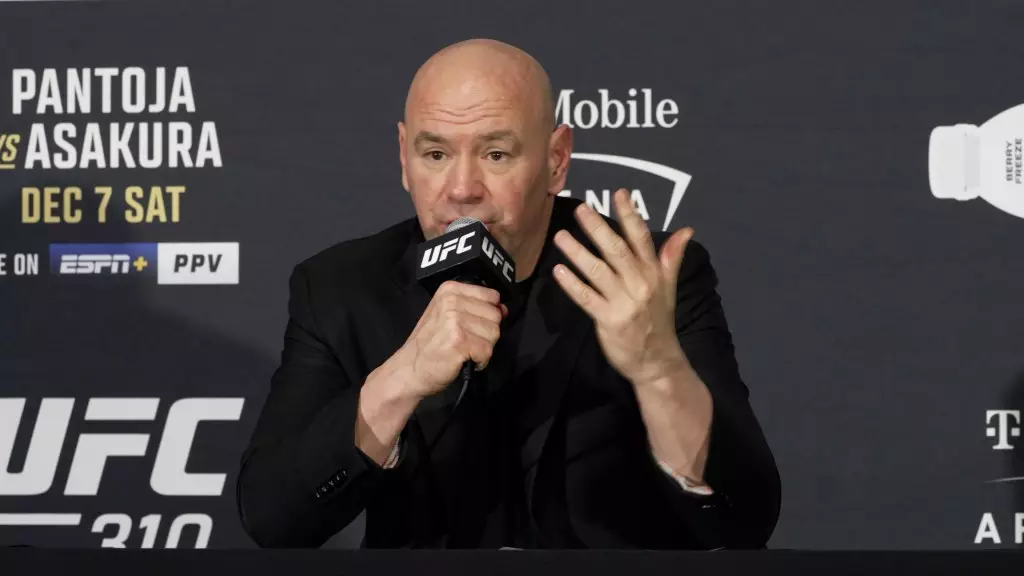The recent events surrounding UFC 310 and the subsequent UFC 311 press conference have thrown into sharp focus the volatile personalities that populate the world of mixed martial arts (MMA). UFC CEO Dana White found himself navigating a series of confrontational incidents involving bantamweight champion Merab Dvalishvili, particularly during a week already filled with high stakes and tensions. Dvalishvili’s interactions with not only his opponents but also fans and fellow fighters present a unique challenge, not just for White but for the UFC as a whole, raising questions about how best to manage such fervent energies.
Rising Tensions Behind the Scenes
Leading up to UFC 311, Dvalishvili exhibited a demeanor that kept security personnel on their toes. A backstage altercation with Umar Nurmagomedov, set against the backdrop of their impending title fight, illustrated just how quickly tensions can escalate in this environment. The heated exchange prompted UFC officials to take preventive measures, seating Dvalishvili further from the action than usual during the press conference. Such occurrences prompt an essential discussion about how fighters carry their personas beyond the octagon and the implications this has for their careers. Are these acts merely promotional antics, or do they signal underlying issues with temperament that need to be addressed?
Dvalishvili’s behavior at UFC 310 did not stop with verbal disputes; it escalated to physical confrontations that necessitated restraint from security. The situation became more severe when he was involved in a distracting altercation with a fan following teammate Aljamain Sterling’s loss. The incident, captured on video, showcased fellow fighter Dennis Buzukja punching the fan, further complicating an already tense situation. This kind of behavior not only jeopardizes the fighters’ reputations but also poses risks to the UFC’s carefully curated image. It raises the critical question of how much tolerance is appropriate for fighters’ tempers and whether consistent accountability measures should be implemented.
Dana White’s remarks regarding Dvalishvili’s temperament offered little clarity but hinted at potential financial repercussions. He likened Dvalishvili’s antics to those of Sean Strickland, albeit less vocal, suggesting that such behaviors could undermine a fighter’s marketability in the long run. White’s frustration was evident when he acknowledged the inherent challenges in managing fighters, implying that while these incidents are part of the fight business, they come with considerable costs. The UFC’s responsibility extends beyond mere combat; it encompasses the fighters’ conduct, especially when their altercations make headlines.
Ultimately, the events surrounding Dvalishvili at UFC 310 underscore a critical need for a more structured approach to managing fighter behavior. The line between promotional bravado and responsible conduct can easily blur, leading to broader implications for the sport. While the UFC thrives on the excitement and unpredictability that fighters bring, fostering an environment that encourages disciplined behavior is essential for the long-term health and credibility of the organization. As White contemplates how to address these issues, it remains crucial for fighters to remember that their actions—and reactions—carry weight far beyond the confines of the octagon.

